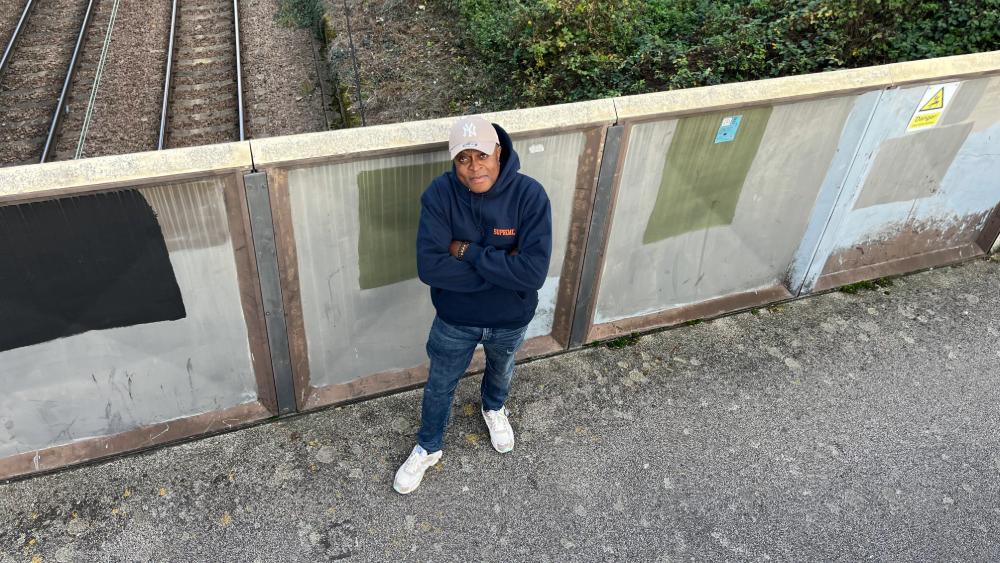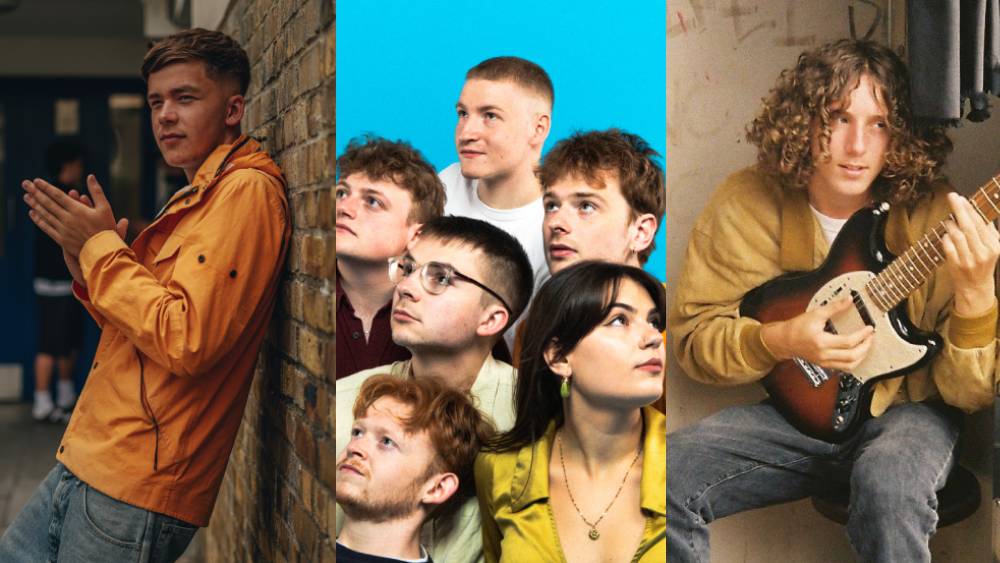In the decades since the arrival of the Windrush Generation in the UK, music has become one of the most important ways for Black British people to stay connected to the wider diaspora. Whether it’s grime, jazz, dancehall, reggae, R&B or jungle, Black British music has long been a source of pride — and there’s no denying that when it comes to appraising British cultural exports, Black music ranks highly.
That’s why the launch this month of BLACMEX, the UK’s first Black music export office, couldn’t be timelier. Founded by experienced industry professionals Kwame Safo and Audrey Gray, BLACMEX will represent Black music genres from across the four devolved nations of the UK. It’ll work to generate opportunities for live music performers, advocate for genre diversity and proactively work with organisations around the world in an effort to reposition the UK Black music sector within the global market.
‘It's about looking at: how do we, in a more reciprocal way, support these talent development partners throughout the whole calendar year?’ Kwame, who was previously Grants & Programmes Manager (Industry Funds) at PRS Foundation, tells M. ‘Currently, they’re only primed to submit applications for funding support around the time when the industry notices them.’
Audrey, who is also a creative projects professional and the former CEO of the Gospel Music Industry Alliance, adds: ‘There is this [ongoing] cultural exchange worldwide that's going to open up for the UK’s Black music genres. People are intrigued by UK genres and Black genres.’
BLACMEX is aiming to be the bridge between various Black music cultures. If, for example, an artist from Cardiff wants to work with an artist from Montserrat, there should be pathways in place that allow them to work together.
‘Our ambition is to lobby and advocate [for Black British music] at government level, even UNESCO level,’ Kwame states. ‘We want to showcase the value of what we do as a community from an authentic space, but on a large scale.’
'People are intrigued by UK genres and Black genres.’ - Audrey Gray
The music industry’s response to George Floyd’s murder in May 2020 was Blackout Tuesday, a collective day of action to protest racism and demonstrate solidarity. While its intentions were sincere, the initiative was also accused of being a knee-jerk reaction to the widespread protests that sprung up following George’s death. Many of the industry pledges that were made on Blackout Tuesday felt fleeting and, in the four years since, many active Black artists and industry professionals still feel there’s not enough parity between themselves and the industry at large.
‘The homogeneous way the traditional music sector has looked at that metric system of success has severely damaged and hindered certain growth aspects of Black music,’ says Kwame. ‘It basically hinges on the premise that if there is a Black music genre within the UK that can't access and impact either Europe or North America, it's of no value.
‘For us, we allowed that introspection [from Blackout Tuesday] to form into actionable change. BLACMEX’s formation is [a result of the] natural trajectory of allowing organisations to develop something more accommodating, and that [sense of] independence actually coming from a point of authenticity.’
Audrey agrees with this view. ‘The metrics for measuring music genres are skewed because, from genre to genre, they each need to be played to those huge audiences. But how do we now quantify that?’ she asks. ‘Even if you look overseas, you'll see that a lot of countries in the Caribbean don’t have access to Spotify. So how are we calculating those audiences?’
Kwame adds that one of his ‘chief ambitions’ with BLACMEX is to ‘instil confidence’ across Black British music: ‘I think the more confident that independent musicians or talent development organisations that work with Black music genres are, the more confident they’ll feel that their genre is export-ready [and able to] represent the portfolio of music which provides value to the UK sector.’
'We allowed that introspection from Blackout Tuesday to form into actionable change.' - Kwame Safo
In many ways, BLACMEX is a call to action: empowering artists and industry professionals alike to think more broadly and imagine new futures when it comes to Black music. With the likes of UK rap, grime and Afrobeats all having a major impact over the past 15 years, there couldn’t be a more pertinent time for BLACMEX to arrive and bridge those gaps. This is particularly true when you consider such emerging genres as Amapiano, kuduro and baile funk — sounds which have shone a light on their respective regions — which have all been blended with Black British music styles in recent years.
Initiatives such as BLACMEX could further this cross-pollination of genres by opening up funding and networking opportunities, ultimately helping level the playing field. This won’t be easy, of course — it’s likely Kwame and Audrey will need to create new ways of working that sit outside the industry’s traditional framework of music exports and tap into how audience behaviours and patterns have shifted post-COVID.
BLACMEX’s refreshing approach to international collaboration and partnership should, however, provide optimism for working musicians and artists who are looking to find new pathways. The initiative already has the backing of several key organisations and influential industry figures, such as PRS Members’ Council President and songwriter Michelle Escoffery.
‘Black music has been a global commodity for as long as we’ve known, but representation of Black music has been lacking for equally as long,’ Michelle says. ‘BLACMEX serves as a catalyst to represent, engage, inform and develop strong, thriving global communities in the business space. This is needed and essential: it’s an exciting time in music export history.’
Going forward, it’s hoped that BLACMEX will help more Black artists collaborate and network across the diaspora, while also building a sustainable live music model which champions a wide array of Black music genres. With the support of a forward-thinking organisation like the one Kwame and Audrey have founded, the future looks bright.
You can find out more about BLACMEX here.





